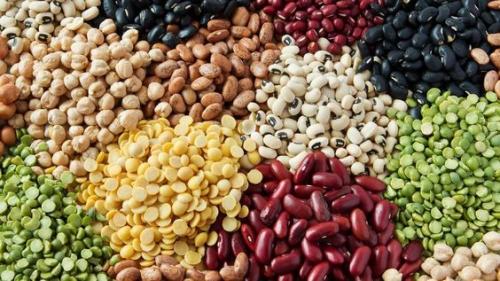Organic Pulses vs. Conventionally Grown: Is There a Difference?

The debate between organic and conventional farming is a long-standing topic in the world of healthy eating and sustainable agriculture. One of the categories of foods being discussed is pulses. Pulses are the edible seeds of leguminous plants, such as lentils, chickpeas, and beans. Organic pulses have become increasingly popular recently, as many consumers believe that they are better in terms of nutritional value and environmental impact compared to conventionally grown pulses. However, is there really a significant difference between the two?
Let us explore further into organic pulses versus conventionally grown and examine the potential disparities.
Understanding Organic Farming
Organic farming is a holistic approach to agriculture that emphasises the use of natural inputs and sustainable practices while minimising the use of synthetic chemicals and genetically modified organisms (GMOs). Organic farmers prioritise soil health through practices such as crop rotation, composting, and the use of cover crops to maintain fertility and prevent erosion. Additionally, organic farming prohibits the use of synthetic pesticides, herbicides, and fertilisers, relying instead on natural alternatives and integrated pest management techniques.
Nutritional Value
One of the primary arguments in favour of organic pulses is their perceived superior nutritional value. Some studies often claim that organic farming practices result in pulses that are higher in essential nutrients and free from harmful residues commonly found in conventionally grown produce. While some studies suggest that organic crops may contain slightly higher levels of certain nutrients and antioxidants, the overall nutritional differences between organic and conventional pulses are generally considered to be minimal.
The variation in nutrient content can be influenced by numerous factors, including soil quality, crop variety, and environmental conditions. While organic farming methods may enhance soil health over time, leading to potentially nutrient-rich crops, the nutritional disparities between organic and conventional pulses are worth considering.
Pesticide Residues
Concerns about pesticide residues are often considered as a driving factor behind the preference for organic pulses. Conventional farming relies heavily on synthetic pesticides to control pests and diseases, which can leave behind chemical residues on the harvested crops. In contrast, organic farming avoids the use of synthetic pesticides, reducing the risk of pesticide contamination in the final product.
Several studies have found lower pesticide residues in organic produce compared to conventionally grown counterparts. However, it’s essential to note that organic farming does permit the use of certain naturally derived pesticides and fertilisers. While organic pulses may have lower pesticide residues, they are not entirely free from pesticide exposure.
Environmental Impact
The impact of agriculture on the environment is a significant factor to consider when comparing organic and conventional farming. Organic farming prioritises sustainability and biodiversity, with the aim of reducing adverse effects on the environment. By avoiding the use of synthetic chemicals and promoting soil health, organic farming can potentially reduce soil erosion, water pollution, and greenhouse gas emissions compared to conventional methods.
Conventional agriculture, on the other hand, often relies on intensive monocropping, which can lead to soil degradation, loss of biodiversity, and dependence on fossil fuels for synthetic inputs. Additionally, the use of synthetic pesticides and fertilisers in conventional farming can contribute to water contamination and harm other non-target organisms.
Conclusion
While some consumers prioritise organic options for their health benefits, others may opt for conventionally grown pulses for affordability and availability. If you are looking for organic products at reasonable prices, you must try AsmitA Organic Farms. Grown by their large network of farmers across India, they offer the best quality organic products online with doorstep delivery. From organic pulses, grains, flours, spices and more, you’ll surely find your favourite picks. Give it a try!
Comments